Welcome to a quick guide on how to treat and prevent acne! Maintaining healthy skin is essential for feeling confident and comfortable in your own skin. In this article, we will explore some tips and tricks on how to effectively address and prevent acne breakouts. By following these simple steps, you can achieve clearer and smoother skin, helping you to look and feel your best. Let’s dive in and learn how to say goodbye to pesky pimples and hello to radiant skin!
How To Treat And Prevent Acne
Are you struggling with acne breakouts and looking for effective solutions to clear up your skin? In this article, we will dive into the methods for treating and preventing acne to help you achieve clear, healthy skin. From over-the-counter treatments to lifestyle changes, we will explore a variety of options to help you combat acne effectively.
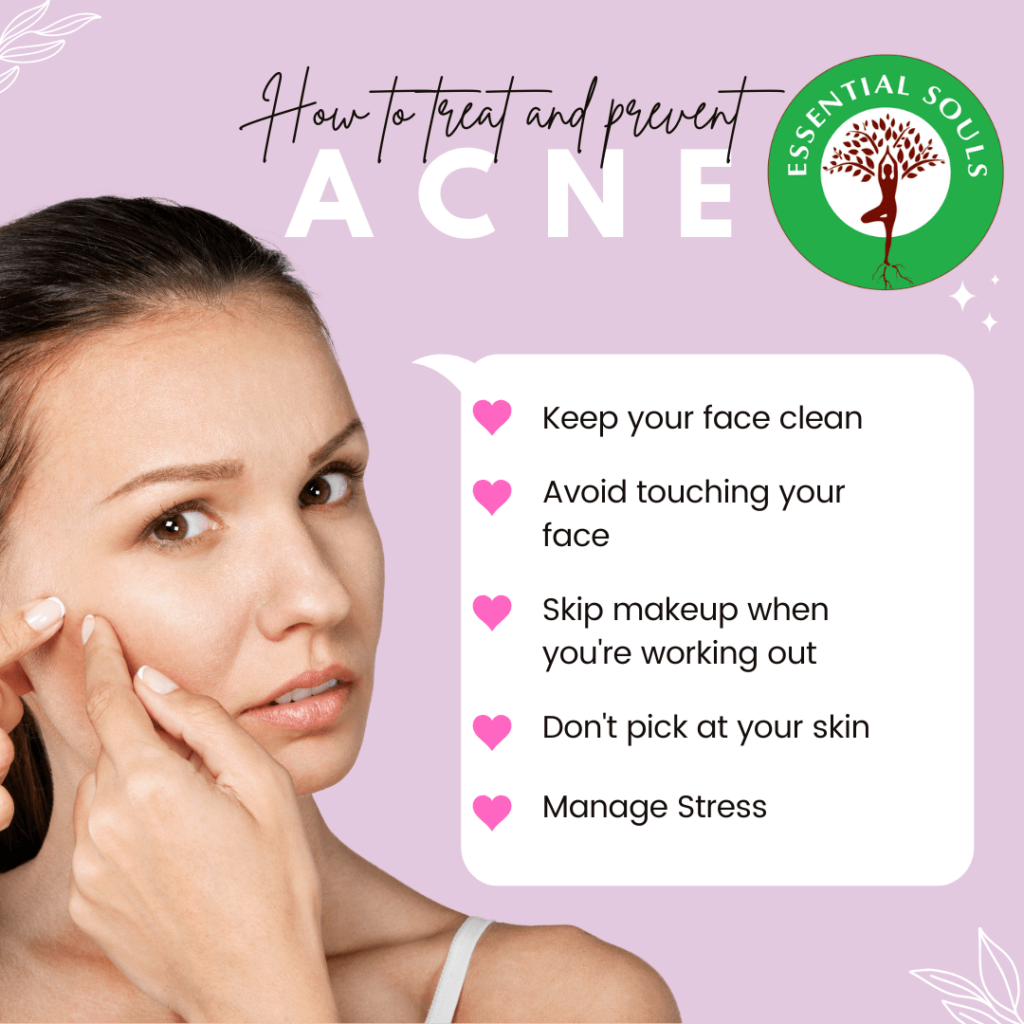
This image is property of galaoflondon.com.
Understanding Acne
First things first, let’s talk about what acne actually is. Acne is a common skin condition that occurs when hair follicles become clogged with oil and dead skin cells. This can lead to the formation of pimples, whiteheads, or blackheads on the skin. Acne can be caused by a variety of factors, including hormonal changes, genetics, and certain medications.
Acne can be frustrating to deal with, but understanding the root causes can help you better address the issue. By knowing what triggers your acne breakouts, you can tailor your treatment plan to effectively manage and prevent future flare-ups.
Over-the-Counter Treatments
One of the first lines of defense against acne is over-the-counter treatments. These products typically contain active ingredients such as benzoyl peroxide, salicylic acid, or sulfur, which can help to unclog pores, reduce inflammation, and kill acne-causing bacteria.
When choosing an over-the-counter acne treatment, it’s important to consider your skin type and the severity of your acne. Some products may be too harsh for sensitive skin, while others may not be strong enough to address severe acne. It may take some trial and error to find the right product that works for you, so be patient and persistent in your search.
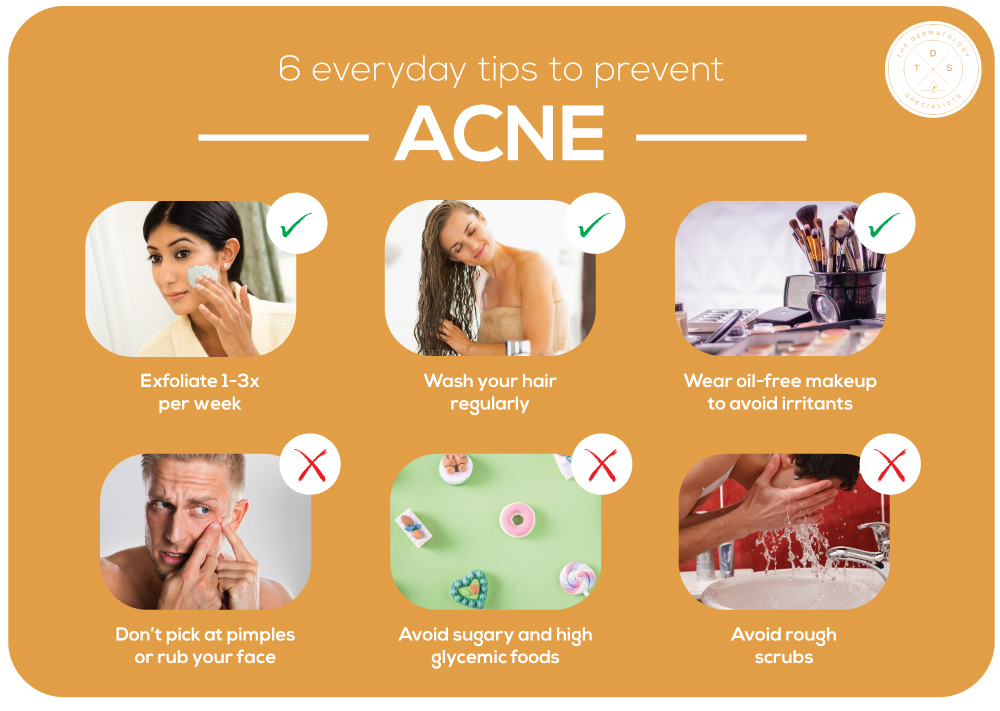
This image is property of thedermspecs.com.
Prescription Medications
In more severe cases of acne, prescription medications may be necessary to effectively treat the condition. These medications may include topical creams, oral antibiotics, or hormonal therapies, depending on the type and severity of your acne.
If over-the-counter treatments have not been effective in clearing up your acne, it may be time to consult with a dermatologist. A dermatologist can evaluate your skin and recommend a personalized treatment plan to target your specific acne concerns. Remember, everyone’s skin is unique, so what works for one person may not work for another.
Skincare Routine
In addition to using acne-specific treatments, establishing a consistent skincare routine can also help to prevent breakouts and promote healthy skin. Here are some basic steps you can incorporate into your daily routine:
- Cleansing: Wash your face twice a day with a gentle cleanser to remove dirt, oil, and impurities from the skin.
- Exfoliating: Use a mild exfoliator once or twice a week to help unclog pores and remove dead skin cells.
- Moisturizing: Apply a lightweight, non-comedogenic moisturizer to keep your skin hydrated without clogging pores.
- Sun Protection: Use a broad-spectrum sunscreen with an SPF of 30 or higher to protect your skin from harmful UV rays.
By following a simple skincare routine, you can help maintain clear, healthy skin and reduce the risk of acne flare-ups.
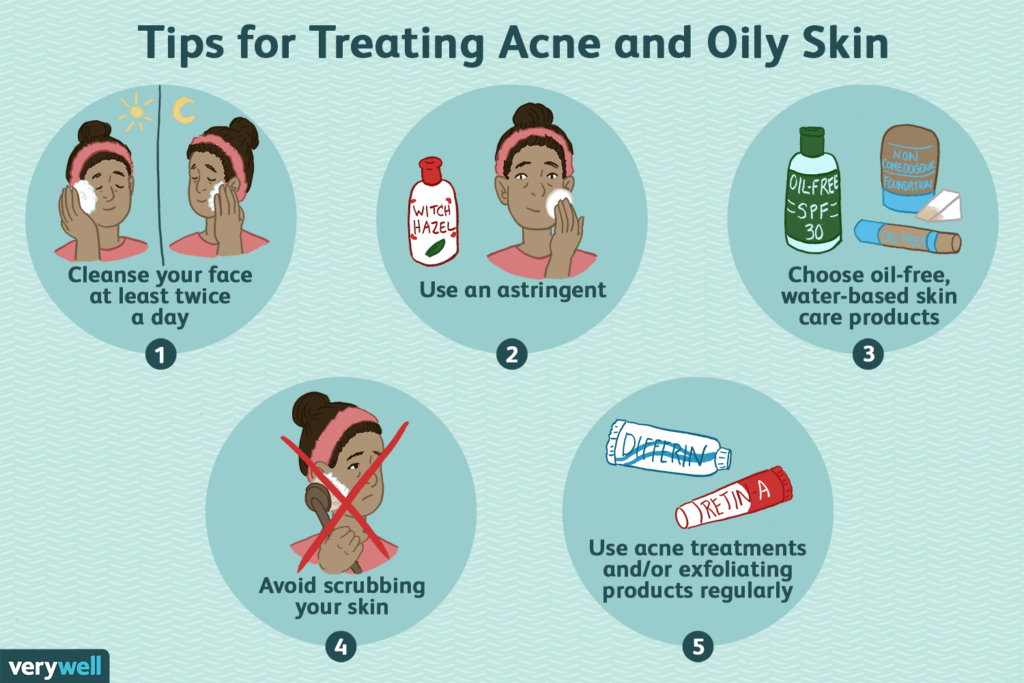
This image is property of www.verywellhealth.com.
Diet and Lifestyle Changes
Believe it or not, your diet and lifestyle choices can also impact the health of your skin. Certain foods and habits can trigger acne breakouts, so making some adjustments to your lifestyle may help improve your skin condition.
Here are some dietary and lifestyle changes you can consider to prevent acne:
- Healthy Diet: Incorporate plenty of fruits, vegetables, whole grains, and lean proteins into your diet to support overall skin health.
- Hydration: Drink an adequate amount of water each day to keep your skin hydrated and flush out toxins from your body.
- Stress Management: Practice stress-reducing activities such as yoga, meditation, or deep breathing exercises to help manage stress levels, which can contribute to acne flare-ups.
- Sleep: Aim for 7-8 hours of quality sleep each night to allow your skin to regenerate and repair itself.
Making these simple changes to your diet and lifestyle can have a positive impact on your skin and overall well-being.
Professional Treatments
In some cases, professional treatments may be necessary to effectively treat acne and improve the appearance of your skin. These treatments are typically performed by dermatologists or skincare professionals and may include:
- Chemical Peels: Chemical peels use a combination of acids to exfoliate the skin and improve its texture and tone.
- Microdermabrasion: This treatment uses a device to exfoliate the skin and remove dead skin cells, helping to unclog pores and reduce acne breakouts.
- Laser Therapy: Laser treatments can target acne-causing bacteria and reduce inflammation in the skin, resulting in clearer, healthier skin.
If you have persistent or severe acne that is not responding to other treatments, it may be worth considering professional treatments to help you achieve the clear skin you desire.
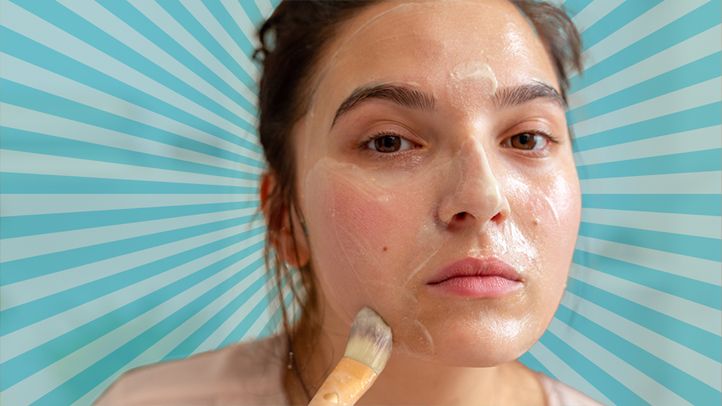
This image is property of images.everydayhealth.com.
Natural Remedies
For those who prefer more natural approaches to skincare, there are also several natural remedies that may help to treat and prevent acne. These remedies often involve using ingredients found in nature, such as:
- Tea Tree Oil: Tea tree oil has antimicrobial properties that can help to kill acne-causing bacteria and reduce inflammation in the skin.
- Honey: Honey is a natural antibacterial agent that can help to soothe and heal acne-prone skin.
- Aloe Vera: Aloe vera has anti-inflammatory properties that can help to calm redness and irritation associated with acne.
While natural remedies may not work for everyone, they can be a gentle and effective alternative for those with sensitive skin or who prefer a more holistic approach to skincare.
Conclusion
Dealing with acne can be a frustrating and challenging experience, but with the right approach, it is possible to achieve clear, healthy skin. By understanding the causes of acne, using the right treatments, and making positive lifestyle choices, you can effectively manage and prevent acne breakouts.
Remember, everyone’s skin is unique, so what works for one person may not work for another. It may take some trial and error to find the right combination of treatments that work for you, so be patient and persistent in your skincare journey. With time and dedication, you can achieve the clear, radiant skin you deserve.
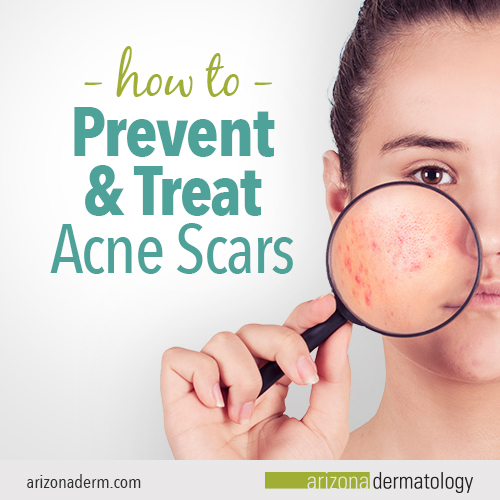
This image is property of arizonaderm.com.
